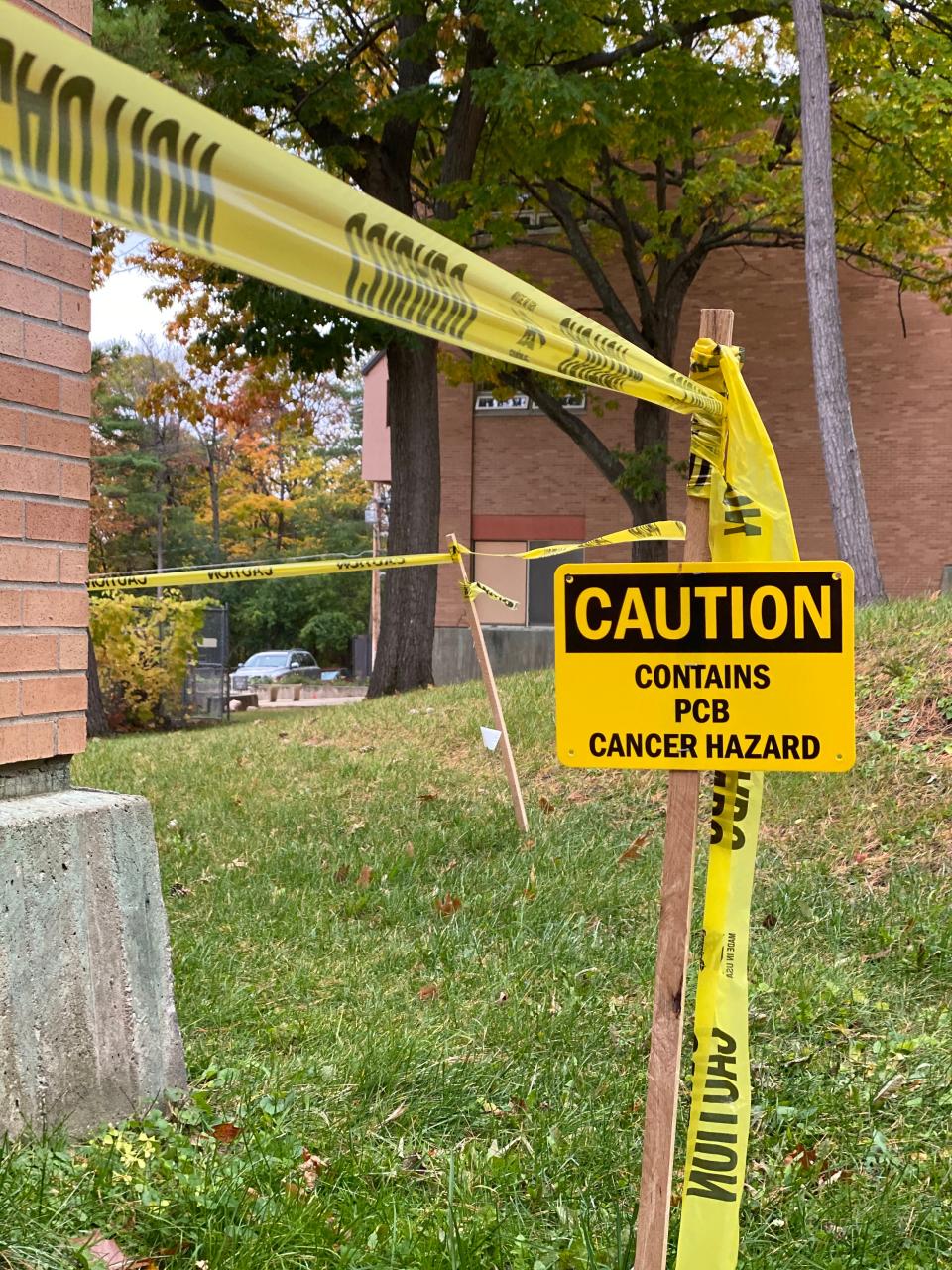Attorney General Clark sues Monsanto over PCB contamination in schools, natural resources
- Oops!Something went wrong.Please try again later.
Vermont Attorney General Charity Clark filed a lawsuit against Monsanto on the grounds of alleged damage to the state’s schools and natural resources caused by the agrochemical corporation’s use of products that contain PCBs, the Office of the Vermont Attorney General announced June 19.
This makes Vermont the first state to sue Monsanto for damages done to schools.
PCBs, or polychlorinated biphenyls, are highly carcinogenic chemical compounds. Their production was banned in the United States in 1979 under the Toxic Substances Control Act, after the compounds were deemed harmful to human health and the environment. In 2021, Vermont Legislature passed Act 74, a bill requiring Vermont to test indoor air quality for PCBs in any school built or renovated before 1980. Vermont’s Department of Environmental Conservation began testing in spring of 2022, and is projected to conclude testing by 2025.

Vermont’s lawsuit follows two prior lawsuits against Monsanto filed in 2022 by Burlington school affiliates. In October, two Burlington High School teachers sued Monsanto alleging their medical issues were linked to prolonged PCB exposure. Shortly thereafter, the Burlington School Board sued Monsanto after Burlington High School and Burlington Technical Center were forced to close following the discovery of PCB contamination in both buildings.
The latter suit asked for compensation for nearly $190 million – the cost to rebuild Burlington High School and Burlington Technical Center.
Clark: Monsanto knew PCB health risks
At a press conference on the steps of the Chittenden Civil Division of the Vermont Superior Court in Burlington, Clark asserted that Monsanto was aware of health risks posed by PCBs well before the U.S. banned them.
“Monsanto manufactured, marketed, sold, and distributed PCBs while knowing that its products would cause significant, long-term damage in Vermont,” Clark said.
Monsanto is responsible for 99% of all PCBs produced in the United States from approximately 1929 to 1977.
At the conference, Justin Kolber, the attorney general’s Environmental and Public Protection Division chief presented evidence cited in the complaint that Monsanto knew the danger of PCBs before they were banned. In 1955, Monsanto employees were warned against eating lunch on the PCB floor. In 1969, a Monsanto manager called PCBs an “uncontrollable pollutant,” the official complaint document reads.
PCBs' impact on water quality
The complaint also cites the significant impact of PCBs on water quality.
“All ten sections of Lake Champlain and the entire 7-mile reach of the Hoosic River is considered impaired for PCBs on Vermont’s most current 303(d) Impaired Waters List,” the document states.
The suit will ideally lead to substantial financial compensation.
“Through the work of the Attorney General’s Office, we hope to secure the necessary resources for comprehensive cleanup and prevention efforts that will benefit both present and future generations as well as compensation for damages to Vermont’s precious natural resources,” Environmental Conservation Commissioner John Beling said.
2023-06-16 Vermont PCBs Complaint by Kate Sadoff on Scribd
Monsanto's response
On Tuesday, Monsanto released a written statement in response to Vermont's lawsuit, stating the allegation "has no merit."
“Monsanto never manufactured, used or disposed of PCBs in Vermont and has not manufactured these products for more than 45 years. The PCB-containing products that are alleged to be the source of any impairment claims were produced by third party companies, not Monsanto. There is no basis in law to impose liability for trespass, nuisance or failure to warn claims on a company that legally manufactured a product, last put them into the stream of commerce over 45 years ago, and had no control over these components once they were sold to sophisticated, industrial manufacturers for use in their finished products," a Monsanto spokesperson said.
Monsanto's further asserted that Vermont will have difficulty proving the impact of PCBs in water sources.
"The State faces a significant burden in proving its claims for many reasons including that it has not issued any orders limiting the discharge of PCBs in waterways (referred to as Total Maximum Daily Load), an action typically taken when there is concern about PCB levels in waters," the statement reads.
Clark made it clear that there are no guarantees; it will not be an easy fight, nor one Vermont will give up.
“We are in it for the long haul,” Clark said.
Contact Kate Sadoff at 310-849-1695 or ksadoff@gannett.com.
This article originally appeared on Burlington Free Press: Vermont sues Monsanto over damages done to schools, natural resources

